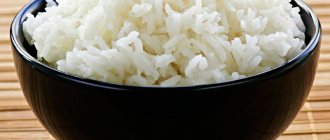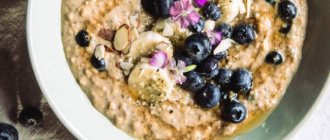Strictly speaking, if you eat incorrectly, you will not be able to lose weight. No way! There are no miracle pills, magic exercise machines, super effective drinks... Regardless of gender, age and body size, your figure is 90% dependent on nutrition! The remaining 10% is sports and physical activity in general. And for expectant mothers, the percentage of dependence on nutrition increases to 95% - sport will already have a different focus, not on losing weight, but on preserving the muscle corset, preparing the body for labor. Of course, provided proper nutrition, sport plays a role in losing weight, but only as an additional method.
However, sport for expectant mothers does not mean the usual strength training, but something lighter with a different focus. Such sports play a role in losing weight, but still do not set such a goal. From now on, the goal is to maintain health, strengthen the muscle corset and prepare the body for the upcoming labor as a whole. However, sports for pregnant women controls the metabolic rate; with regular exercise, the metabolism accelerates, which means that fat deposits are destroyed.
Strictly speaking, in the concept of “Sports for pregnant women” three important components can be distinguished:
- Gymnastics for pregnant women.
- Pool.
- Everyday lifestyle.
Let's talk about each component in more detail.
Why is the expectant mother getting better?
A woman may gain weight during pregnancy for several reasons:
A greatly changed hormonal background provokes an increase in appetite several times. During this period, the concentration of progesterone and prolactin increases significantly. These female hormones affect the area in the brain that controls appetite and can trigger a voracious appetite. Progesterone also affects water-mineral metabolism. This is precisely what is associated with the insatiable craving of pregnant women to eat a pickled cucumber or a piece of herring. If the expectant mother is expecting a boy, she will almost certainly be drawn to salty foods much more often. This is due to high progesterone levels.
- Significant weight gain. During pregnancy, a woman usually gains at least 5-6 kg. This is absolutely normal. The total weight is added to the weight of the unborn baby (about 3 kg), the volume of amniotic fluid (up to a liter), as well as the weight of the placenta (about 700-800 g). During a multiple pregnancy, when the mother is expecting twins or twins, these values can increase by 1.5 - 2 times. It turns out that the physiological increase can be about 10 kg.
- Excessive consumption of fatty and high-calorie foods provokes the deposition of belly fat. The fat layer increases noticeably. We can say that this is good. Fat protects the baby from possible shocks and shocks (like a pillow). However, it can cause severe harm to both mother and baby. When there is too much fat, it puts a lot of pressure on the diaphragm. This may interfere with breathing. In this case, it is very difficult for a woman to breathe, especially when walking quickly. She often experiences shortness of breath.
This is dangerous for the child because the fat begins to put pressure on the mother’s womb, where it is located. Large blood vessels that carry nutrients from mother to baby are compressed.
Menu by trimester to lose weight
The sensations and general well-being of a woman during pregnancy are largely determined by the duration of the pregnancy. You should plan your menu depending on your gestational age.
1st trimester
The 1st trimester refers to the first 12 weeks of pregnancy. Over a given period of time, it is quite easy to gain excess weight, since the hormonal system changes, metabolic processes in the body also undergo changes, and the woman is just getting used to the new state. The most optimal nutritional value in this trimeter is 2000 kcal.
In order to maintain body weight within normal limits at this time, you should eat lean meats (lean beef, rabbit, chicken, veal), boiled eggs, all types of cabbage, low-fat dairy products (milk, cheeses, cottage cheese, yoghurts) , beef liver, bran bread, natural juices.
Exclusions from the diet require all canned foods, any sweet carbonated water, instant foods, crackers, chips, snacks, sauces, especially those based on mayonnaise.
2nd trimester
This trimester of pregnancy is a time of active growth and development of the baby. During this period, the formation of the main organs and systems and their proper functioning occur. Therefore, the expectant mother needs proper and balanced nutrition. The calorie intake at this time should be approximately 2500 kcal. You should avoid sweets and confectionery. You need to consume more vegetables and fruits, as they are rich in vitamins.
Vegetables, fruits, dairy products, butter (but do not abuse it), egg yolk, low-fat sea fish (haddock, cod, navaga) will be useful during this period.
At this time, sausages, fried and fatty foods, excessively spicy, salty, smoked and peppered dishes are completely excluded from the diet.
3rd trimester
The third trimester is the final stage of the entire pregnancy period.
At this time, you should not abuse food, as this can lead to excess weight and complicate the course of the labor period. Daily caloric intake should not be more than 2800 kcal.
You can maintain a normal body weight by including more vegetables and fruits, nuts, vegetable-based soups, steamed fish, boiled or steamed meat in your diet.
It is required to minimize the consumption of vegetable and butter oils, egg yolks, and lard. If swelling occurs, then in this case the drinking regime is reduced to 1 liter of liquid per day.
Interesting article: Features of the diet for pregnant women in the 3rd trimester: the most complete information!
What foods help reduce excess weight during pregnancy?
The menu for pregnant women should be compiled very competently. The need for all nutrients, vitamins and microelements increases significantly. It is also important to increase the calorie content of the diet (up to 2500 - 3000 kcal per day). However, this does not mean at all that you need to increase your calorie content with buns and fried pies!
There are a lot of products that can help you lose excess weight. Using their combinations, you can prepare delicious and healthy dishes for mother and baby.
An excellent substitute for Snickers would be a handful of walnuts and a couple of slices of dark chocolate with a high cocoa content.
There is practically no sugar in this chocolate, which significantly reduces the risk of extra centimeters on your waist. Eating chocolate every day is not recommended. This is a fairly fatty product and should not be consumed very often.
Nuts and fruits during pregnancy are needed not only by the mother, but also by the baby. Gynecologists prescribe multivitamin complexes immediately after a pregnant woman is registered at a dispensary. It is recommended to take vitamins daily. The child, being in the mother's tummy, actively grows and develops. This growth is the fastest and most active in human life. For normal development, vitamins and microelements are needed. Mom also needs them for her immunity.
Fruits contain a huge amount of different vitamins. They contain a lot of potassium, magnesium, and vitamin C. These are excellent helpers in the formation of a healthy child’s body. Every day, mom should eat at least three servings of different types of fruit. It is better to choose fruits that are not too sweet. Limit your consumption of persimmons and bananas during pregnancy. They are too high in calories and can cause you to gain a lot of weight.
What foods cause obesity?
To stay slim and beautiful throughout your pregnancy, you should limit your consumption of:
Nutrition rules
A woman's diet during pregnancy is somewhat different from her usual diet. It is recommended to limit calorie content to the range of 2200-2500 kcal. A certain number of calories is determined taking into account the length of pregnancy, the amount of excess weight and the condition of the child in the womb. As for nutrients, their amount in the diet of pregnant women should be:
- 110-120 g proteins;
- 300-350 g carbohydrates;
- 80-100 g fat.
Salt intake is limited to 5 g per day. The reason is that this product retains fluid in the body, which leads to the development of edema. If the weight grows too quickly, then once a week it is allowed to do a fasting day. It involves eating all foods without sugar or salt. The drinks chosen are only water, weak tea, and rosehip infusion. Other diet rules during pregnancy:
- strictly control calories;
- use complex carbohydrates instead of simple carbohydrates;
- do not eat 3-4 hours before bedtime;
- chew food thoroughly;
- do not fry foods - it is better to bake, stew, boil or steam them;
- eat 4-5 times a day, using small portions, and from the end of the second trimester - 5-7 times;
- cook immediately before consumption so as not to reheat the food;
- for breakfast it is better to take cereals, meat, fish, for lunch and dinner - sour cream, cottage cheese, cheese, plant products;
- eat at the same time;
- eat in a calm environment, not on the go;
- use a varied menu.
Balanced diet
The only correct diet that can help you get rid of extra pounds without harming your child is a healthy diet. This system is time-tested and approved by all doctors in the world.
- Create a menu for the week yourself or seek advice from a specialist. This will help you understand what foods you should always have in your refrigerator. Keep in mind that it is better to eat at least 4 - 5 times a day. Write down all your meals and focus on your routine. Be sure to start with breakfast! This is the most important meal of the entire day.
- You should not eat fried foods often. For cooking, it is better to choose stewing or steaming. If you want to fry something, it is better to use a grill or bake the food in the oven. A multicooker and a double boiler will be excellent helpers for the expectant mother. They are very convenient for preparing various dishes without using oil.
- Any alcoholic drinks are strictly prohibited. Alcohol greatly stimulates your appetite and makes you eat much more. Not only strong drinks are prohibited, but also beer and wine. They negatively affect the fetus and can even lead to the development of abnormalities or deformities.
- Try to chew your food thoroughly. This way you won't eat a very large portion. In this case, saturation will occur much faster. The more thoroughly the food is crushed, the easier it is to digest. The baby will quickly receive all the nutrients, and this will have a positive effect on his growth and intrauterine development.
- Don't go to rest immediately after eating. It’s better to sit or walk around the apartment for a while. This way the food will enter the stomach evenly and will not cause digestive problems. While developing in the mother's womb, the baby actively puts pressure on the diaphragm. This contributes to some tightening of the stomach. If you lie down after a heavy meal, belching or nausea occurs.
- Try to eat at the same time every day. This normalizes the functioning of the gastrointestinal tract. All nutrients necessary for the development of the child will be supplied evenly, at certain intervals.
How to eat during pregnancy to lose weight?
Virtually all women expecting a baby face dramatic changes in taste preferences. Moreover, appetite also increases. This is quite normal, since a growing body requires a lot of micronutrients. But if you choose the right diet, then the expectant mother will not have to eat for two. In addition, a weight gain not exceeding twelve kilograms is considered normal.
First of all, a woman must establish her own eating regimen, because uncontrolled eating of sweets will definitely not benefit her figure. It is recommended to eat five times a day. The end result is three main meals and two snacks that will help you get rid of the feeling of hunger. It is very important to eat food at the same time. Of course, it will be difficult to adjust initially, but the result is really worth the effort.
The expectant mother must drink two liters of plain water every day until the beginning of the third trimester. Liquid has a positive effect on metabolic processes, so subcutaneous fat will be deposited in much smaller quantities. A woman must definitely give up her favorite fast food, peppered crackers and chips, sweets with a high content of dyes and flavors, carbonated fruit drinks, smoked meats, sausages and sausages with dubious composition.
It is also important to remember that some foods can provoke the development of severe allergies, which has an extremely negative effect on the condition of the body as a whole. Therefore, you need to exclude citrus fruits, specific seafood, honey and chocolate from your usual menu. It may seem that the expectant mother's diet should consist exclusively of vegetables and fruits, but this is not so.
You should consider what foods will help you lose weight during pregnancy without harming the baby. If earlier a woman preferred all kinds of meat dishes, now she needs to limit herself to chicken fillet, since it contains a sufficient amount of essential microelements and is low-fat. But you should remember that the bird needs to be baked, boiled, stewed, but not fried. But fish should be consumed with caution, giving preference to species with minimal fat content.
Dairy products must be present in the daily menu. The expectant mother can drink a glass of kefir or low-fat yogurt every day, eat one hundred grams of cottage cheese or several pieces of cheese. It is also advisable to eat bread and buns made from wholemeal flour, but, of course, in small quantities.
Sweets should be replaced with a variety of dried fruits, fruit desserts and jellies. But if a woman really wants to eat a piece of chocolate, it is better to do it before twelve o’clock in the afternoon, since at this time the food is well processed and is not transformed into subcutaneous fat. As for fruits and vegetables, they can be consumed almost without restrictions. It should be remembered that some foods contain too many carbohydrates (grapes, pineapple, avocado, pears, bananas).
It is much easier if a woman followed a healthy lifestyle before pregnancy, then it will be easy for her to comply with food restrictions. Weight loss for pregnant women should be based on your doctor's recommendations regarding your diet. During the entire period of bearing a baby, it is considered normal if a woman gains about 11-16 kg. This includes weight:
- fruit – 3-3.5 kg;
- placenta – 5-6.5 kg;
- amniotic fluid – 0.6-1 kg;
- adipose tissue – 3-5 kg.
The mass of the mammary glands, uterine tissue, and the volume of circulating blood increases. To correctly calculate the weekly increase, you need to know how much the expectant mother weighed before pregnancy. With early registration, it is easier to find out when the weight begins to increase, exceeding the norm. In order to create a diet correctly, you need to take into account the duration and illness of the pregnant woman.
In 1st trimester
In the first weeks of pregnancy, weight loss is allowed according to the usual scheme. After 8 weeks, signs such as nausea and changes in taste preferences begin to appear. It is very difficult to gain weight at this time, so slight weight loss during pregnancy in the first trimester, which occurs due to toxicosis, is considered normal.
In the second trimester
The second trimester begins from the 14th week. The gain at this time of pregnancy per week should be about 500-800 g; if this figure is higher, the woman’s weight will increase. Shortness of breath, heaviness in the legs will appear, and it will become difficult to take daily walks. At this stage, you should contact a nutritionist and find out how to lose weight during the 2nd trimester of pregnancy. Simple rules will help you reduce your weekly gain and lose weight:
- Take food 5-6 times a day in portions of 150-200 g.
- Eliminate coffee and cocoa, replace them with herbal teas, fruit drinks, and natural juices.
- Instead of sweets, there are dried fruits, candied fruits, marmalade, and jelly.
- Give preference to bread made from coarse rye or oatmeal.
- Add more vegetables to the menu, limiting the consumption of potatoes to 1 time per day.
- Avoid fried and smoked foods; it is allowed to stew, boil, steam, and bake.
- Drink at least 1.5 liters of clean water throughout the day.
- Do simple physical exercises, walk.
In the 3rd trimester
From 28 to 40 weeks, the fetus is actively growing and weight gain occurs faster. A woman should ensure regular bowel and bladder emptying. If fluid and feces begin to accumulate in a pregnant woman’s body, this will lead to edema and the accumulation of extra pounds. You need to adhere to a normal diet, rest more often, and follow the recommendations regarding weight loss prescribed by your doctor.
When pregnancy occurs, you should limit your consumption of sweets and animal fats.
Increase the amount of complex carbohydrates in the diet, that is, grains and vegetables. You cannot sharply reduce food portions; innovations should be made gradually and gradually switch to healthy foods.
Recommendations regarding diet:
- Drink purified water and broths, freshly prepared fruit and vegetable juices.
- On an empty stomach in the morning, drink carrot or lemon juice, diluted to half the volume with water (in the absence of allergies).
- At night, for a restful sleep, you should eat a little honey with sour juice.
- You should not overuse meat, it is allowed only a couple of times a week. They prepare boiled poultry, buckwheat, bran, legumes, eggs, eggplants, etc.
- Heat treatment should be minimal; preference is given to steamed dishes, baked in foil, stewed with the peel.
- The diet should contain more whole foods; it is useful to eat vegetables with tops, fruits along with grains and peels. The body will be saturated not only with carbohydrates and proteins, but also with microelements and mineral salts.
- Minimum amount of salt in dishes so as not to increase the amount of liquid you drink, which will invariably lead to swelling.
If you have toxicosis, you cannot refuse food, because the walls of an empty stomach release more acid. It is recommended to eat a dry crust of bread without getting out of bed to muffle the gag reflex.
To take care of a growing baby, the expectant mother should stop eating high-calorie foods and reconsider her diet:
- You should forget about visiting canteens and cafes. They prepare food with a lot of fat, add flavorings and high-calorie sauces, which is fraught with excess deposits and health problems.
- Breakfast should be a must so that during lunch you don’t have to pounce on food to make up for the calorie deficit.
- You can’t overeat at night; if you want a snack, you can drink a glass of low-fat kefir or eat an apple.
- Minimize the consumption of sausages, soda, pickles, hamburgers, and sharp cheeses. The best option is to cook healthy dishes in a double boiler.
- Create a complete menu based on natural products containing vitamins and minerals.
- Fasting should not be allowed during pregnancy.
- Physical activity. Even walking in the park will bring many benefits to mother and growing baby.
During pregnancy, the body is constantly experiencing a lack of calories, but you should learn to make up for the deficiency with healthy foods, and not fill your hunger with fatty steaks and cakes.
Losing weight at different stages of pregnancy
Losing weight in the early stages of pregnancy is much easier than later.
First trimester
In the first trimester, you need to include as many protein foods as possible in your diet. At this time, the baby develops all vital organs. For proper development, many protein molecules (more precisely, their components - amino acids) are required. If certain amino acids are deficient, organ development may be impaired. This is a very dangerous condition, as defects and anomalies appear in the organs.
Second and third trimesters
In the first and second trimester, try to eat more protein foods (chicken, turkey, fish, beef, lean pork and dairy products). You can eat legumes. They contain a lot of vegetable protein. But don't overdo it!
Excessive consumption of peas or beans can cause excessive gas and bloating. This has an adverse effect on the baby.
From the middle of the second trimester and throughout the third trimester, it is important to pay special attention to the numbers on the scale. If the expectant mother is addicted to salty foods, severe swelling and weight gain may occur. Swelling most often appears on the legs. In this case, it will be very difficult to move. The face may swell. Usually in such cases, doctors recommend using diuretic herbs and completely eliminating foods that contain a lot of table salt. Cranberry or lingonberry juice are great helpers in the fight against swelling!
Recommendations and tips for maintaining weight
To avoid having to desperately lose the pounds gained during pregnancy, you should monitor your diet daily without harming the baby. You can’t eat everything just by indulging your whims! Moreover, it is even dangerous during pregnancy. Many foods increase the likelihood of a child developing various diseases and abnormalities.
Give your body vitamins! Include fresh fruits and berries in your diet (especially if your pregnancy occurs in spring or summer). This is a wonderful opportunity to consume natural vitamins.
Drink enough water (at least two liters per day). However, you should not lean on salty foods! Salty foods make you thirsty. At the same time, it retains water greatly. Bags under your eyes and swollen ankles the next morning are guaranteed.
Don't forget to move.
Regular walks in the fresh air are the best recommendation for expectant mothers. During such walks, the blood is saturated with oxygen. The baby receives oxygen through the mother's blood and placenta. This significantly increases its intrauterine activity and growth.
If you exercised before pregnancy, talk to your doctor. Perhaps he will be able to allow you to do some exercises that are safe for the baby. Take a yoga class for pregnant women. This is a great opportunity to strengthen your muscles and improve your mood! The release of serotonin after exercise will improve the mood of mother and baby. Remember that any physical activity must be regular. Pace and speed are not the main thing. Any exercise should be done at a pace that is comfortable for you.
Get enough sleep! A pregnant woman needs to sleep at least 8 hours a day. Melatonin is produced at night. This hormone restores the body and gives rest to the nervous system. During sleep, hormonal levels are normalized. Women who regularly get enough sleep eat much less at lunch.
A routine is also important for a child’s body. This helps his nervous system to form correctly. It is better to ventilate the bedroom before resting. This will ensure good and sound sleep.
The development and growth of the baby completely depend on the mother. Only she can ensure the supply of all necessary nutrients, vitamins, and microelements. Monitoring the quality of nutrition during pregnancy guarantees excellent health for mother and baby.
Sample diet for a week
Despite all the restrictions, pregnant women need to eat tasty and varied meals, at least five to six times . It is better to add oil to prepared dishes rather than use it for frying, as the beneficial substances contained in it disintegrate under the influence of high temperatures.
When composing your daily diet, you need to focus on your food preferences, since eating foods you don’t like will not bring any positive emotions.
As a sample diet during pregnancy for weight loss, you can take the following version of the weekly menu.
Monday:
- breakfast - oatmeal porridge with milk, fruit juice;
- lunch – low-fat cheese, toasted whole grain bread;
- lunch – borscht with sour cream, boiled beef;
- afternoon snack – fruit salad;
- dinner – pilaf with chicken, fresh vegetable salad;
- late dinner - kefir.
Tuesday:
- breakfast – casserole of cottage cheese and dried fruits, fresh fruit jelly;
- lunch - omelet;
- lunch - salmon soup, boiled fish, cabbage and carrot salad;
- afternoon snack – baked apples;
- dinner - turkey and vegetable stew;
- 2nd dinner – milkshake.
Wednesday:
- breakfast – millet porridge with pumpkin, milk;
- lunch – cottage cheese with prunes;
- lunch – cauliflower soup, baked chicken breast;
- afternoon snack - fresh seasonal fruits;
- dinner - beef liver soufflé, toasted bread, cucumber and tomato salad;
- late dinner - fermented baked milk.
Thursday:
- breakfast - muesli with fruit yogurt;
- lunch – lazy dumplings with sour cream;
- lunch - peasant soup, boiled tongue, carrot and apple salad;
- afternoon snack – Greek salad;
- dinner – stewed fish in sour cream sauce, boiled broccoli;
- 2nd dinner – baked milk.
Friday:
- breakfast – barley milk porridge, dried fruit compote;
- lunch – cheese, butter, whole grain bread;
- lunch - soup with meatballs, beetroot and prune salad;
- afternoon snack - beef jellied meat;
- dinner – chicken liver stewed in sour cream, boiled rice;
- before bed – seasonal fruits.
Find out why plums are useful for pregnant women, why they should be included in your diet when you can’t eat them.
Find out about the benefits of sea buckthorn for pregnant women in another article - here.
Also find out in advance the rules of the postpartum diet for nursing mothers here:
Saturday:
- breakfast – rice milk porridge, butter;
- lunch - souffle of cottage cheese and carrots;
- lunch - fresh cabbage soup, boiled turkey, sour cream;
- afternoon snack – vegetable omelette;
- dinner – mackerel baked with vegetables;
- 2nd dinner – fruit yogurt.
Sunday:
- breakfast – corn porridge with milk;
- lunch - boiled tongue, dried bread, fresh cucumber;
- lunch – roast rabbit, cooked in a pot, vinaigrette.
- afternoon snack - salad of seaweed and boiled egg;
- dinner – turkey cutlets, boiled buckwheat;
- before bed – compote of fresh berries.
The diet menu for pregnant women when gaining excess weight can be changed in accordance with your preferences, the main thing is to follow the principles of nutrition for weight loss.
How to lose weight during pregnancy without harming the baby
Many women, while carrying a baby, eat “for two” and believe that 9 months of pregnancy is a period without prohibitions, including those regarding caloric intake and food volumes. But it is known that eating without prohibitions is fraught with extra pounds for the expectant mother, which often becomes the cause of numerous complications during or after childbirth. The danger of excess weight lurks not only for the expectant mother, but also for the body of a small developing person.
For example, doctors warn about the following negative situations:
- threat of miscarriage;
- premature onset of labor;
- childbirth with complications that threaten the health of the baby;
- difficult recovery after childbirth;
- increased blood loss;
- load on the endocrine system, heart and blood vessels, musculoskeletal system;
- phlebeurysm.
Losing weight during pregnancy
To prevent these problems from overshadowing the well-being and mood of a pregnant woman, you need to control yourself and monitor your weight. But if, nevertheless, the expectant mother managed to gain a few extra pounds, then doctors recommend that the woman lose a little weight.
Is it possible to lose weight while pregnant without harming the baby?
Pregnancy is the best time to change your lifestyle and improve your body health. In the future, proper nutrition will help you get in shape easier and faster and lose the weight you gained after the birth of your baby.
According to gynecologists who monitor pregnancy, weight loss is necessary only for those women who have gained extra pounds above the average. What are these kilograms made of:
- about 1.5 kg are “strategic reserves” that are formed in the first months of pregnancy;
- approximately 1 kg is allocated to amniotic fluid;
- on average, 3.5 kg - the actual weight of the child;
- The placenta that nourishes the fetus weighs 500 g;
- approximately 2 kg is the increased mass of the mammary glands, uterus and blood.
Proper nutrition during pregnancy
In general, the average woman gains about 10-12 kg during pregnancy.
Both overweight and underweight can cause harm to the health of the unborn baby. How to lose weight correctly during pregnancy without harming the baby? Under no circumstances should a woman go on a strict diet or arrange fasting days on her own in order to lose excess weight. At this stage, it is very important for the female body to regularly receive all the necessary components for the normal formation and development of the baby.
Diet menu during pregnancy for weight loss
The basic principles of dietary nutrition during pregnancy are described above, but the menu for each trimester will have its own distinctive features. The main thing in creating a diet is to enrich the mother’s body with the necessary amount of zinc, folic acid, copper, and selenium. This reduces the risk of developing congenital pathologies in the fetus. Products with iodine, vitamins B and C, and cobalt will help a woman cope with toxicosis. In addition, these substances help to properly form the thyroid gland in the fetus.
In 1st trimester
During this stage of pregnancy, the embryo gradually develops and becomes a fetus. The heartbeat can be felt already at 3 weeks. At 4 you can distinguish the eyes, spine, circulatory system, and intestines. The main criterion for transformation into a fetus is the formation of the brain. Since such important organs develop in the first trimester, at this time it is especially important for a pregnant woman to provide her baby with all the necessary nutrients. Several examples of the daily menu are presented in the table:
| Meals | Option 1 | Option 2 | Option 3 | Option 4 |
| Breakfast | Muesli with milk | Buckwheat with milk, juice | Low-fat cottage cheese in the form of cheesecakes, herbal tea | Oatmeal with milk |
| Snack | Low-fat yogurt | Yogurt | A handful of dried apricots | Omelette |
| Dinner | Meat broth soup | Broccoli or cauliflower soup, bread | Vegetable soup with chicken breast | Fish or meat soup |
| Afternoon snack | Vegetable salad | Pear or apple | Grated carrots with blocks | Seasonal fruit |
| Dinner | Stewed cabbage with rice | Salad with avocado, spinach and tomatoes | Green salad with tomatoes and soft cheese | Vegetable stew with meat |
| Before bedtime | Milk | Cranberry juice | Milk glass | Rosehip infusion |
In the 2nd trimester
In the second trimester of pregnancy, the formation of the most important body systems is completed. They continue to develop: the mass of the brain increases, breathing begins, the skeletal system strengthens, and the rudiments of teeth are formed. For this reason, it is important for a pregnant woman to eat in a way that promotes these changes. To do this, you need to ensure that the child receives a sufficient amount of oxygen, calcium, and vitamin D. Foods should be saturated with them. These include yolk, milk, spinach, raisins, butter. Daily menu options are presented in the table:
| Meals | Option 1 | Option 2 | Option 3 | Option 4 |
| Breakfast | Toast with tomatoes and cheese, 1 egg omelette | Cheesecakes with sour cream | Grated berries with cottage cheese | Milk corn porridge with dried apricots |
| Snack | Cottage cheese with a handful of raisins | Any fruit | Bread with cheese | Low-fat yogurt |
| Dinner | Soup with vegetables | Fish or meat soup | Buckwheat with beef, vegetable salad, tea | Cabbage soup, cucumber and tomato salad |
| Afternoon snack | Glass of yogurt | A glass of low-fat yogurt | Any fruit or juice | A handful of nuts |
| Dinner | Greens and avocado salad | Porridge with milk | Chicken breast with tomatoes | Zucchini pancakes with sour cream |
| Before bedtime | Rosehip infusion | Fruit or vegetable salad | Yogurt or milk | Yogurt |
In the 3rd trimester
The diet in the third trimester of pregnancy takes into account the quality of foods rather than their quantity. A woman’s body needs carbohydrates, but they should not be consumed uncontrollably. If they are abused, there is a high risk of pathological weight gain. This can lead to a difficult birth and complications for the baby. It is important to limit your water consumption to 1 liter per day. Fasting days are recommended 1-2 times every week, but only under the supervision of a doctor. To create a menu for the third trimester, you can use the following options:
| Meals | Option 1 | Option 2 | Option 3 | Option 4 |
| Breakfast | Butter sandwich, tea | Tea with dry biscuits | Boiled eggs, bread with butter | Oatmeal porridge with dried apricots |
| Snack | Egg and seaweed salad | Yogurt | Fruit | Toast with lightly salted salmon |
| Dinner | Fish broth soup | Borscht, vegetable salad | Roast vegetables and beef | Pumpkin soup with baked chicken breast |
| Afternoon snack | A serving of cottage cheese | Berry smoothie with kefir | Ryazhenka | Any fruit |
| Dinner | Puree with lean meat or fish | Steamed vegetables with rice | Lazy cabbage rolls | Boiled fish with rice cereal |
| Before bedtime | Fruit juice or salad | Herb tea | Juice | Yogurt |
How to lose weight
The principles of losing weight for pregnant women are practically no different from the principles of losing extra pounds in all people:
- Daily healthy diet with calorie counting.
- Physical activity approved by your doctor. They depend on the general well-being of the woman, the trimester of pregnancy and whether the woman was involved in any sport before pregnancy.
Physical activity during pregnancy
What general dietary principles are safe for a pregnant woman and baby? This is a diet based on the consumption of healthy foods, rich in proteins, fats, carbohydrates, and amino acids necessary for two interconnected organisms. The main emphasis should be on “live” products that do not contain artificial additives and flavors.
It is advisable to replace the sausage with a piece of boiled meat, prefer local varieties of apples to canned compotes, and eat a teaspoon of honey or sweet dried fruits instead of sweets or store-bought jams.
A pregnant woman should understand the importance of foods that contain the maximum amount of vitamins and beneficial microelements for her and the baby, in particular, eggs, cereals, fish, meat, herbs, dairy and fermented milk products, vegetables and fruits.
Cooking method: boiling, baking in the oven or slow cooker, stewing, steaming.
Note! If a pregnant woman cannot refuse some fried or other high-calorie dishes that are heavy on the stomach, then it is better to eat them in the 1st half of the day.
It is recommended to eat little by little, but often, at least 5 times a day. Table salt and flour-sweet products must be limited to the minimum possible amount. If you follow these general principles of nutrition, you can gain weight strictly according to the norm during pregnancy, and if you have already gained excess weight, you can easily lose it.
Such a nutrition plan should be accompanied by the right drinks. Pregnant women who need to lose weight should forget about kvass, Coca-Cola and other brightly colored carbonated drinks. It is beneficial for them to drink vegetable and fruit juices, dried fruit compotes or fruit drinks without sugar, tea or plain mineral water without gas. A pregnant woman's kidneys are subject to double load, so doctors recommend following this drinking regimen - drink portions should be small, and intervals between drinks should also be observed.
During pregnancy it is useful to drink vegetable and fruit juices
Sometimes the doctor recommends an option for weight maintenance to the expectant mother, such as fasting days. They are necessary for obesity, the risk of gestational diabetes mellitus, the need to improve metabolism, the presence of protein in the urine, rapid weight gain, and in some other cases. The doctor can accept such a conclusion only after a thorough examination and consultation with other specialists.
Important! 1 fasting day is allowed for 7-9 days and only after the 28th week of pregnancy, when the main important organs of the child are already formed.
The most popular and optimal products for unloading are apples, cucumbers, kefir, and cottage cheese. In addition, you can use recipes for cooking buckwheat, lean meat or fish. If your health worsens, urgent consultation with a doctor is necessary to adjust your diet.
If women feel normal and there are no contraindications, it is useful for women to attend sports groups for pregnant women, where they can perform simple physical exercises under the guidance of a trainer. Swimming, yoga, Kegel exercises, and movements on a fitball will help you lose excess weight and improve your body before childbirth. If such training is contraindicated for a woman, then walking in the fresh air may be a possible option.
Nutrition rules during pregnancy
During pregnancy, nutritionists recommend following the following rules:
- monitor the total calorie intake (manually or using a special application);
- eat small meals, at least 4–5 times a day, but allocate 3 main meals (having a heartier breakfast, lunch and dinner reduces the risk of overeating);
- chew food thoroughly and do not drink food;
- exclude from the diet foods that aggravate swelling and increase appetite (spices, marinades, salty and hot sauces);
- if necessary, carry out fasting days (not earlier than 28 weeks of gestation);
- include foods rich in fiber in the menu;
- give preference to complex carbohydrates, and reduce the consumption of simple ones (sugar, fructose, confectionery, white bread, etc.) to a minimum;
- have dinner no later than 2.5–3 hours before bedtime;
- drink 1–1.5 liters of liquid per day (depending on the trimester).
There are no strict requirements for the diet and methods of processing food during a healthy pregnancy, but it is recommended to cook food in a double boiler, foil, baking bag or grill. Stewing and cooking are also allowed. Prolonged simmering or stewing, frying, pickling, salting and drying are completely excluded if possible.
You should check with your doctor about how to lose weight during pregnancy with rapid weight gain. The doctor identifies the cause of the pathology, checks hormonal levels and blood biochemistry, and then selects a menu that will allow you to lose weight without harming the health of the pregnant woman and the fetus.
Authorized Products
The list of foods allowed during the diet includes the following:
- lean vegetable, low-fat fish and meat broths, soups based on vegetables, white fish, poultry and low-fat beef with the addition of a small amount of cereals, durum wheat pasta or potatoes;
- dietary meats (rabbit, beef and veal tenderloin without fat and connective tissue, turkey and chicken without skin);
- low-fat fish (cod, pollock, pike perch, hake, carp, etc.);
- fermented milk products and drinks with low fat content (cottage cheese, natural yogurt, kefir, fermented baked milk, sourdough), whole milk;
- rye, bran and whole grain bread, dry biscuits, slightly stale pastries, unhealthy cookies;
- chicken eggs;
- vegetables (sweet peppers, tomatoes, all varieties of cabbage, carrots, pumpkin, zucchini, cucumbers, tomatoes, and in small quantities certain types of greens);
- fruits and berries;
- a decoction of rose hips, unsweetened juices with pulp and compotes of fruits, berries or dried fruits, weak black tea with milk, smoothies of vegetables and fruits, still water, green tea in moderation, herbal infusions that are not contraindicated during pregnancy.
Vegetables can be eaten as separate dishes (salads, soups, casseroles) or added to meat and fish. Vegetable oils must be added to dishes (cold pressed oils are recommended). Allowed products are recommended to be consumed in the following quantities:
- meat - up to 150 g per day;
- fish - up to 150 g per day;
- fermented milk drinks and milk - from 200 ml per day;
- bread and permitted types of baked goods - 100–150 g per day;
- eggs - 1–2 pcs. in Week;
- vegetables and fruits are not limited, but the daily calorie intake is taken into account.
Meat and fish can be baked in foil, in a sleeve, on a baking sheet and on the grill, used for making steamed cutlets, soufflés, zraz, stuffed vegetables and rolls. They can be added to soup to create a base (broth) or in the form of meatballs. Salt and hot spices should be used sparingly.
Cottage cheese can be used to prepare dietary cheesecakes and casseroles, mousses and baked goods. Fresh fermented milk products are allowed to be consumed subject to a full sanitary and veterinary inspection.
It is recommended to eat eggs in the form of a steam omelet.
Foods prohibited during pregnancy
The following foods should be completely excluded from a pregnant woman’s diet:
- rich meat and fish broths;
- fresh baked goods, bread made from premium flour;
- sausages, canned meat, smoked meats;
- salted fish, canned fish, crab sticks;
- dumplings and other semi-finished products;
- fast food;
- products containing a large number of chemical additives (preservatives, melting agents, flavorings, sweeteners, dyes): curd masses and sweet yoghurts with additives, processed cheese, industrially produced diet cakes, etc.;
- mayonnaise and sauces based on it, confectionery fat;
- caffeinated and sweet carbonated drinks, alcohol;
- caustic vegetables (onions and green onions, radishes, radishes, horseradish, garlic) and hot spices (for heartburn);
- confectionery, baked goods, sweet fruits (grapes, bananas, persimmons), chocolate, ice cream, jams and preserves (for gestational diabetes);
- some types of greens: sorrel, spinach, etc. (with an increased risk of kidney stones), parsley (not recommended in early pregnancy, with uterine tone and threat of miscarriage).
During pregnancy, you should limit your consumption of the following foods:
- hard cheese (especially sharp and smoked varieties);
- semolina;
- legumes (ripe and green peas, lentils, beans);
- beets;
- butter (no more than 15–20 g per day).
The safest weight loss techniques
How to lose weight during pregnancy without harming the baby? All safe methods of losing weight without consequences for the baby’s health largely depend on the duration of pregnancy. In the first trimester, that is, in the early stages of pregnancy, women practically do not gain weight beyond the norm. You just need to follow the rules of a healthy diet.
Conveniently keep a food diary to control and count calories
In the second trimester, you need to be more careful with your diet. If you have a few extra pounds of weight, doctors advise women to keep a food diary, in which it is convenient to write down your diet by day, as well as the number of calories of all foods. Although keeping a diary will take a little personal time, it will help you quickly adjust your diet towards increasing or decreasing portions.
In the third trimester (late pregnancy), in order to lose excess weight, it is better to use the fractional nutrition method. This contributes not only to good health, but also to the optimal development of the baby. At this stage, it is especially important to eat a lot of fresh vegetables and fruits, avoid sugar and choose complex carbohydrates. They give you a feeling of fullness for a long time.
It is possible and necessary to take care of your weight while expecting a child, especially if there are medical reasons for this. Losing weight or simply monitoring the process of weight gain must be done under the supervision of a doctor, because all interventions in the natural mechanisms of the body of a woman awaiting the birth of a baby can cause significant harm to her and the child.
Special diets for pregnant women
In addition to the classic nutrition system, there is also a special diet for losing weight during pregnancy. It is aimed specifically at weight loss, but its diet is also balanced, so it provides the mother and child with all the necessary substances. Each diet has basic principles and a list of recommended products. For this reason, observing them will not be difficult. Salt-free and hypoallergenic food systems are the safest and most commonly used of all.
A more original example is the apple diet during pregnancy. For it, simply take 1 kg of apples, which are divided into 5 servings of 200 g each. Each is consumed in a certain way:
- the first - without processing;
- the second - grated with 5 g of vegetable oil;
- the third - grated with the addition of celery root and 2 g of fresh parsley, seasoned with 1 tsp. low-fat mayonnaise;
- the fourth - in the form of apple juice;
- the fifth - in the form of apple puree with the addition of dried apricots and prunes.
Salt-free
It is recommended for a pregnant woman to consume no more than 5 g of table salt per day. This is because excess of this product causes swelling, fluid accumulation and weight gain. As a result, the risk of developing diseases of the cardiovascular system, liver and kidneys increases. In pregnant women, excess salt is manifested by increased blood pressure and swelling. In this case, they are shown a salt-free diet. It is also necessary when weight gain exceeds the norm.
The essence of the technique is to completely avoid salt, which causes swelling. Its deficiency can be compensated for by eating the right foods, such as:
- fish;
- 10 g butter;
- fruits;
- milk;
- cottage cheese;
- low-fat kefir;
- tea.
You need to exclude not only salt, but also foods high in salt. At first, such a system may seem harsh. Sea salt helps get rid of the blandness of dishes. It is used to add salt to the dish at the end of cooking. It is necessary to completely abandon:
- acute;
- salty;
- fat;
- fried;
- smoked;
- pickles;
- confectionery products;
- sour;
- marinades;
- pork;
- lamb
Hypoallergenic
Different types of allergies develop in a child in the womb. The reason is that a woman has intolerance to certain foods. A special hypoallergenic diet for pregnant women for weight loss helps prevent the development of allergies. It is allowed to eat a lot of fiber in the form of vegetables and fruits of dull color, lean meats, mushrooms, honey, and porridge. Prohibited for use:
- citrus;
- chicken;
- strawberry;
- raspberries;
- pickles;
- spicy dishes;
- fish;
- milk;
- red and black caviar;
- cheese;
- milk;
- canned food;
- chocolate.
About clinical studies
What are clinical trials and why are they needed?
These are studies in which people (volunteers) participate and during which scientists find out whether a new drug, treatment or medical device is more effective and safer for human health than existing ones.
The main goal of clinical research is to find the best way to prevent, diagnose and treat a particular disease. Conducting clinical research is necessary to develop medicine, improve people's quality of life, and to make new treatments available to everyone.
How are they carried out?
Each study has four stages (phases):
Phase I
— researchers are testing a drug or treatment method for the first time with a small group of people
(20-80 people)
.
The purpose of this stage is to find out how safe the drug or treatment is and to identify side effects. This stage can involve both healthy people and people with a suitable medical condition
. To begin Phase I of the clinical trial, scientists spent several years conducting hundreds of other tests, including safety tests, using laboratory animals whose metabolism is as close as possible to humans;
II phase
— researchers give a drug or treatment to a larger group of people
(100–300 people)
to determine its effectiveness and continue to study its safety. This stage involves people with a suitable disease;
III phase
- Researchers provide a drug or treatment to large groups of people
(1000-3000 people)
to
confirm its effectiveness, compare it with the gold standard (or placebo)
, and gather additional information that will allow it to be used safely.
Sometimes other, rare side effects are identified at this stage. It also involves people with a qualifying medical condition. If phase III is successful, the drug is registered with the Ministry of Health
and doctors are able to prescribe it;
Benefits and risks for participants. pros
- free access to new treatments before they become widely used;
- quality care, which usually far exceeds that available in routine practice;
- participation in the development of medicine and the search for new effective treatment methods, which may be useful not only for you, but also for other patients, which may include family members;
- sometimes doctors continue to observe and provide assistance after the study ends.











